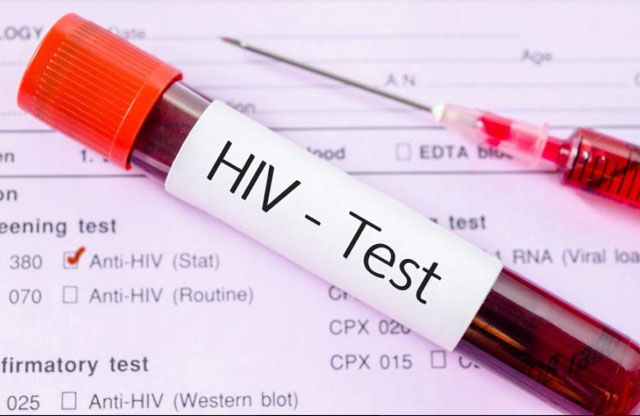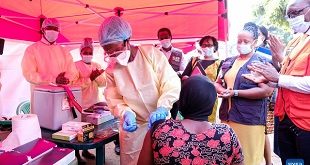
Retesting people to confirm HIV positive results might appear costly but is cheaper than treating people wrongly diagnosed
THE INDEPENDENT | Julian E. Sabiiti | It is well-known that an HIV-positive diagnosis can have detrimental results on people affected. A person diagnosed as HIV positive can undergo depression, withdraw from the public and make the wrong decisions in their personal life. But what if the HIV- positive result is a misdiagnosis?
Under the current World Health Organization (WHO) `Treat All’ guidelines on HIV treatment, misdiagnosis might imply unnecessary use of antiretroviral treatment (ART) for the rest of this person’s life.
Musa Okello from Lira in northern Uganda knows that first hand. The 30-year old was misdiagnosed in May and was immediately started on ART. He says when his body reacted badly to the medication; he sought confirmatory tests at Lira Regional Hospital, the AIDS Information Centre, and Marie Stoppes which all turned out to be negative.
He says the ART poisoned his body and he is now suing MBN-Clinical Laboratories; a private medical facility in Lira town for Shs165 million in compensation.
Another case involves Godfrey Ntaro who dragged The Surgery; a high end clinic in Kampala over false HIV diagnosis. Ntaro wants the clinic to pay him Shs1 billion because, he says, wrong results from the clinic cost him a job. He says he was wrongly started on ART until subsequent tests at Ebenezer Clinical Laboratory and the Joint Clinical Research Center turned out HIV negative.
In another famous case, Balikuddembe Mukasa sued The Aids Support Organization (TASO) for misdiagnosis. Mukasa says he wants TASO to compensate him for the mental anguish, stress, and ridicule that he suffered before retests at Uganda Cares, Uganda Research Unit on AIDS, and the Joint Clinical Research Center found he was HIV-negative.
These cases show another unseen cost of HIV misdiagnosis – cases start popping up in courts.
Far less known, however, is the effect of HIV misdiagnosis on the health sector.
Misdiagnosis can undermine the trust of the public in HIV results given which will then lower the numbers of people testing for HIV.
It can also have serious cost implication on the government because of all the people being initiated on antiretroviral treatment (ART) despite not being sick.
Although it has not occurred yet, issuing an HIV-positive misdiagnosis in a government facility can also have serious cost implication on the government because of settlement of the lawsuits that might arise based on the misdiagnosis.
Rush to start ART
It appears focus on HIV-positive misdiagnosis has increased since the World Health Organization (WHO) introduced the `Treat All’ guidelines on HIV treatment.
The treat-all policy has been in force since 2016 when WHO issued the consolidated guidelines on the use of antiretroviral drugs for treating and preventing HIV infection.
The new policy recommendations on HIV treatment and care included the 90-90-90 targets which have seen countries like Uganda in a rush to enroll all HIV-positive people on ART.
According to Dr. Joshua Musinguzi, the Program Manager of the AIDS program at Ministry of Health, out of an estimated 1.3 million living with HIV in Uganda, 1.2 million are receiving ARTs. That is a 92% rate; well above the WHO ecommendation of 90%. But could the rush to get every HIV-positive person on ART be leading to ignoring another key recommendation; re-testing all HIV- positive persons before confirming the diagnosis?
The Minister of Health, Dr. Jane Ruth Aceng, told The Independent that Uganda has observed the retesting policy recommended by WHO since the 90s.
According to her, after the initial test turns out to be positive, a second test is done by a different person, using a different tester, for confirmation. In case the first two tests show different results, a third test; the Bioline test, is further carried out.
Dr. Musinguzi also told The Independent that for the sake of quality assurance, the Uganda Virus Research Institute certifies both individuals and Health Facilities before they can start providing HTS (HIV Testing Services). Because of these precautions taken, cases of wrong positive diagnoses have become very rare in Uganda.
However, Musinguzi and the minister might be focusing more on the government facilities and less on what goes on in private clinics.
As the cases popping up in court show, there appears to be HIV-positive misdiagnosis going on because of failure to retest.
New international study
The cases popping up are similar to results of a new international study released recently.
Published by the Public Library of Science (PLOS) on July 01, the study aimed to show how failure to retest could be causing unnecessary high medical costs.
The study authors, who are associated with Division of Global HIV & TB, Center for Global Health, Centers for Disease Control and Prevention in the United States, arrived at this conclusion after comparing the cost of retesting for verification of an HIV positive result and the cost of antiretroviral treatment (ART) for misdiagnosed cases in the absence of retesting.
Their findings showed that choosing not to retest for verification could be leading to an estimated unnecessary cost of $717 million in HIV treatment across Africa. This cost could become a saving if retesting is done.
The study was carried out using data collected from 50 countries within Africa. A cost analysis of HIV retesting for verification after initial diagnosis was done with two scenarios taken into consideration: implementing retesting for verification of all initially HIV-positive diagnosed cases prior to ART initiation and no retesting.
In terms of ART costs, only costs incurred for those misdiagnosed as HIV-positive were considered because the cost of ART would be the same in both scenarios considered. Also, costs considered were facility based because although initial diagnosis may happen in the community, retesting should ideally be done by a different person from the one that administered the initial test.
Over the ten-year horizon, the estimated number of misdiagnoses in the absence of retesting for verification was 156,117 for Lower Income Countries. The study assumed a 75% reduction in misdiagnosis while retesting for verification, putting the estimated number of misdiagnosed cases with retesting for verification at 39,029 for LICs, over the same period.
In the case of Uganda, the government pays an average of $21 million per year (Approx. Shs78 billion) to buy HIV testing kits (with each test costing less than a dollar). Meanwhile, the government spends an average of $150 million per year (Approx. Shs550 billion UGX) on antiretroviral treatment (ART). Most of this is from the Global Fund. This does not include the estimated costs on the time of staff of the health facilities and the cost of subsequent tests such as viral load monitoring. The cost could go higher if the additional costs are included.
A lot of self-testing goes on too but when a positive result is returned, patients typically go into health facilities for confirmatory tests. Those who do not are encouraged to go to registered health facilities immediately for retesting to avoid the adverse outcomes of starting taking ARTs based on a wrong test result.
The WHO first recommended retesting for verification of new diagnoses in 1997, but newer guidelines re-emphasized the `Treat All’ guidelines.
Where there’s low adoption of the retesting strategy, according to the study, reasons may include: lack of knowledge about the retesting recommendation, providers’ reliance on other clinical assessments as required under previous ART guidelines that were indicative of HIV infection, lack of data about the magnitude of misdiagnosis, concerns of the additional costs and resources needed to implement retesting for verification or suspicions that the operational requirements of re-testing could be an impediment to rapid ART initiation.
Retesting for verification, however, applies only to persons not on ART because HIV diagnostic tests validated for use on persons taking ART are not available and once persons are on ART, rapid tests may give false negative results due to waning of antibodies.
The authors recommended that countries review their data, consider the long term financial, personal and societal costs associated with not retesting for verification, and include retesting for verification as an integral quality assurance component in the development or revision of their `Treat All’ plans.
 The Independent Uganda: You get the Truth we Pay the Price
The Independent Uganda: You get the Truth we Pay the Price


